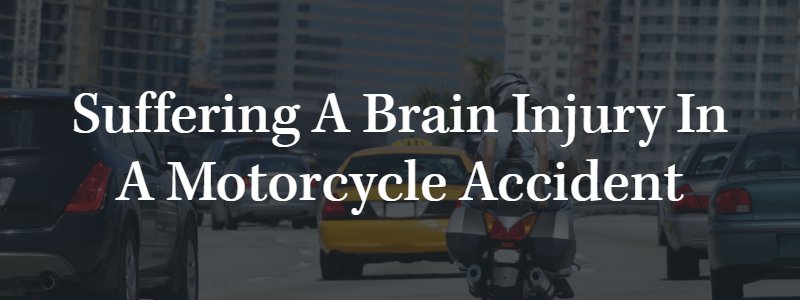Motorcycle accidents are not uncommon in Philadelphia. According to the PA Department of Transportation, there were nearly 3,000 total motorcycle crashes during the latest reporting year across the Commonwealth. Out of these incidents, there were 174 fatalities and 2,860 injuries. Unfortunately, motorcyclists are much more likely to sustain a traumatic brain injury in the event a crash occurs. Even when a motorcyclist is wearing a helmet, the impact of a collision can cause significant brain damage. In Pennsylvania, there is no universal helmet law, and many motorcyclists forgo this vital safety gear. Here, we want to discuss what happens after a brain injury occurs in a motorcycle accident.
What is a brain injury?
A traumatic brain injury occurs anytime the normal functioning of the brain is disrupted “by a bump, blow, or jolt to the head, or penetrating head injury,” according to the US Centers for Disease Control and Prevention (CDC). Brain Injuries can range from relatively mild concussions to more severe traumatic brain injuries that could leave a person with permanent physical and cognitive disabilities.
How can a brain injury affect a motorcycle crash victim?
A moderate to severe traumatic brain injury caused by a motorcycle crash could have various effects on the accident victim. There is a wide range of symptoms the victims could experience depending on what part of the brain is affected and the effectiveness of medical treatment. Our brains control every system in our body, including our physical bodily functions as well as our emotional and psychological stability. Damage to the brain can interfere with any of these functions. Motorcycle crash brain injury victims may experience the following:
- A loss of consciousness, including semi-conscious states or a coma
- Motor deficits, including numbness, weakness, paralysis, or an impaired ability to perform certain movements
- Speech and language deficits, including slurred or slurred speech, inability to form words, or the inability to read or understand speech
- Cognitive deficits, including forgetfulness, reduced ability to organize thoughts, memory loss, loss of understanding abstract concepts, and more
- Emotional deficits, including depression, anxiety, drastic mood swings, uncontrolled temper, suicidal thoughts, and more
- Other functional deficits, including chronic fatigue, persistent headaches, social isolation, insomnia, etc.
The costs of living with a brain injury
After sustaining a motorcycle accident brain injury, victims and their families face significant challenges. Brain injuries can impose significant financial burdens on every party involved. This can include not only the initial costs of medical treatment, but also major long-term costs, including the following:
- Lost income if the victim cannot work
- The cost of traveling to and from brain specialists
- Home or vehicle modifications to aid in mobility
- The ongoing cost of rehabilitative care and physical therapy
This does not include the many non-economic costs associated with these injuries, including the significant emotional and psychological toll the injury will have on the victim and their family members.
Securing compensation after a motorcycle crash
If you or somebody you care about has sustained a brain injury caused by the negligent actions of another driver, contact an attorney as soon as possible. You may be entitled to compensation, but these cases can be challenging. An experienced Philadelphia motorcycle accident attorney can use their resources and legal expertise to help you through this entire process and ensure that you are properly cared for.
